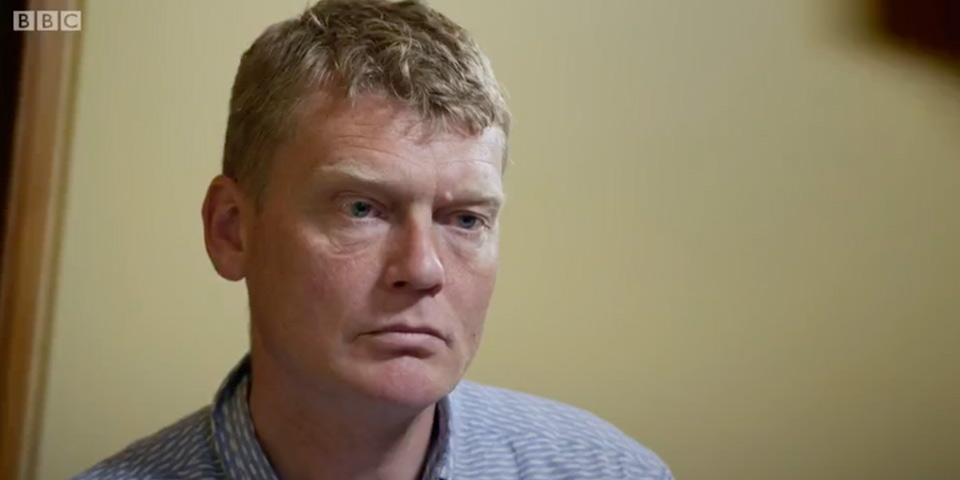
Tom Heap and the BBC stand condemned for lack of objectivity and distance when it comes to GM – Claire Robinson reports
The BBC presenter and journalist Tom Heap recently addressed the annual dinner of the British Society of Plant Breeders (BSPB). The BSPB is an industry body with Monsanto and Syngenta among its members, along with other multinationals. Its chairman until recently was Dr Richard Summers, a former Monsanto employee. Previous chairs have included the head of Syngenta Seeds Ltd in the UK.
Heap is a presenter for BBC Countryfile, which covers farming and rural affairs. He also presented the controversial BBC Panorama programme on GM crops, “Cultivating fear”, which suggested that opposition to GMOs is “morally unacceptable” and that those who oppose GMOs are prone to “making things up” instead of relying on facts and sound science.
According to a recent BSPB newsletter, Heap advised his industry audience on how to gain greater public acceptance for GM, saying “the key to securing greater public acceptance… for controversial technologies such as GM” lies in delivering “tangible benefits for consumers”.
Drawing a spurious link between GM and climate change, Heap also said he hoped that reporting on GM in the media would become more one-sided by taking less account of critical viewpoints, in accord with the “need to acknowledge the scientific consensus – rather than simply two sides of an argument”.
In this statement, Heap ignored the well-publicised fact that there is no scientific consensus on GMO safety. And that the real link between GMOs and climate change is that industry and its allies have consistently lied on both.
Heap lamented that reporting on farming issues was “too often” reported from an environmental, rather than a business, point of view. He also told his industry audience that complacency about the availability and affordability of food had allowed a “creeping demonisation of modern farming as a rapacious destroyer of Nature”.
Unacceptable breach of journalistic ethics
The BSPB openly lobbies for GM crops and to remove the “regulatory obstacles” to their introduction in the UK. It also lobbies for and enforces intellectual property rights on seeds, including on farm-saved seed (i.e. seed not purchased from seed companies). The BSPB has lobbied the UK government and the EU for the acceptance of traces of GM material in non-GM seed supplies.
It is unacceptable for a BBC reporter to advise such an industry body on how they can more successfully make the case for GM – just as it would be unacceptable for him to advise anti-GMO activists on how to make their case.
At a time when the issue of journalistic conflicts of interest in relation to the GM debate is gaining increasing attention, Heap should know better.
There’s also the issue of whether Heap was paid to speak, which is a highly controversial issue in relation to those reporting on the food and agriculture industries.
But even if Heap was not paid, his speech is problematic. It shows that he has his own strong opinions in favour of GM and against balanced reporting on the issue. And his reporting shows that he does indeed fail to achieve critical distance on the issue.
Peter Melchett, policy director of the organic farming organisation, the Soil Association, commented, “Investigative reporters, especially at the BBC, are usually careful to remain neutral – a least in public – about controversial issues that they are frequently asked to report on. Tom Heap reports on GM for Countryfile and Panorama, and the issue is still controversial, despite three of the four elected governments in the countries of the UK completely rejecting GM crops.
“Yet Tom Heap is apparently happy to speak in favour of GM and to give advice to pro-GM campaigners about how to secure ‘greater public acceptance for… controversial technologies such as GM’. In future, maybe Countryfile should swap their ‘Tom Heap investigates’ introduction for ‘pro-GM campaigner Tom Heap investigates’.”










